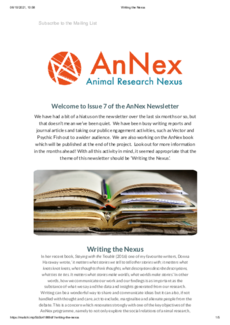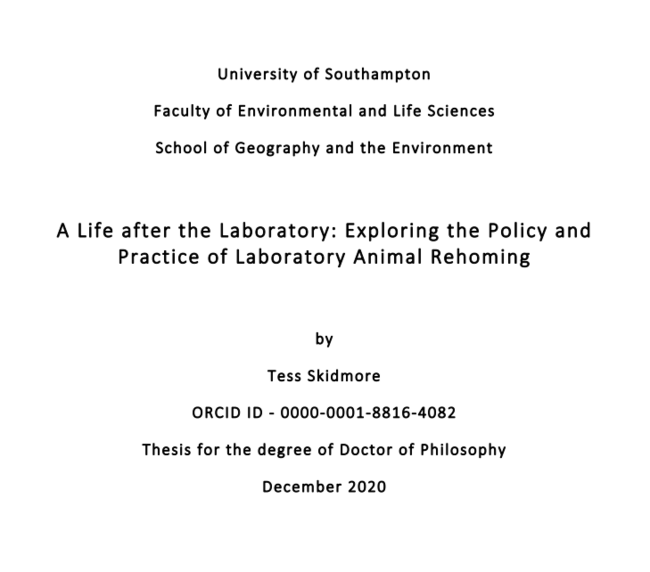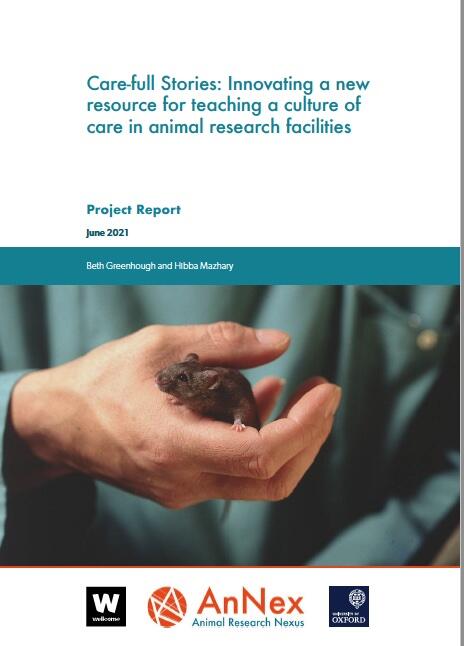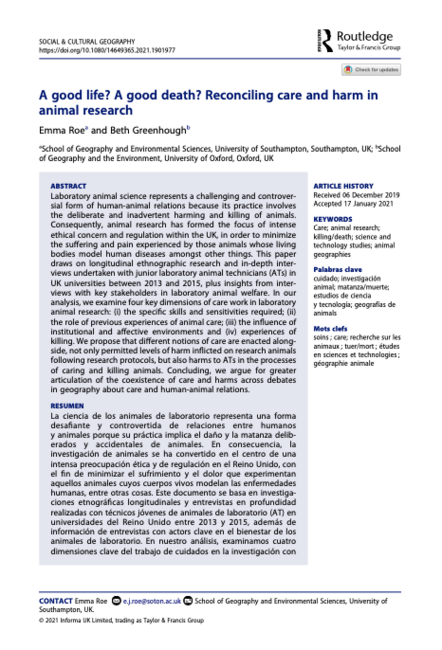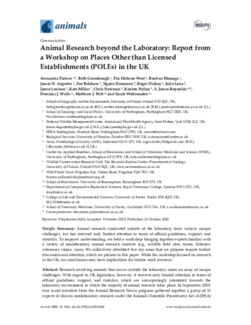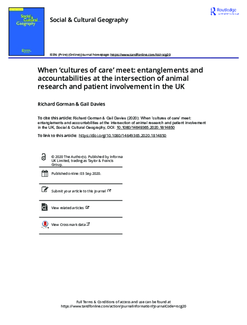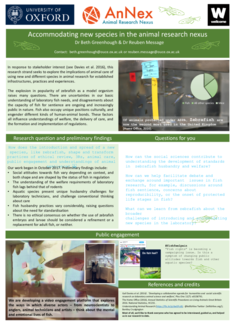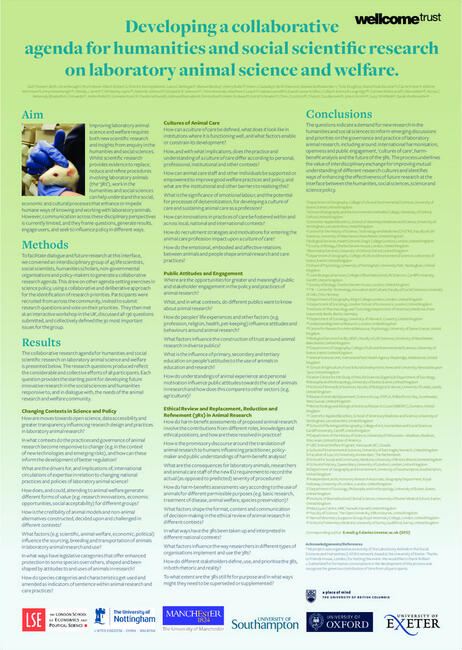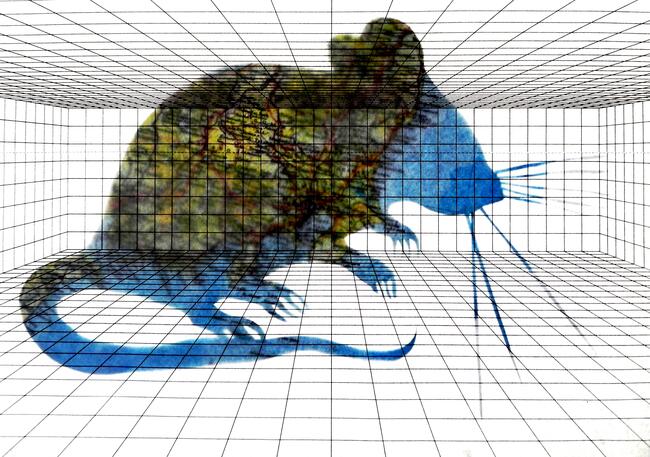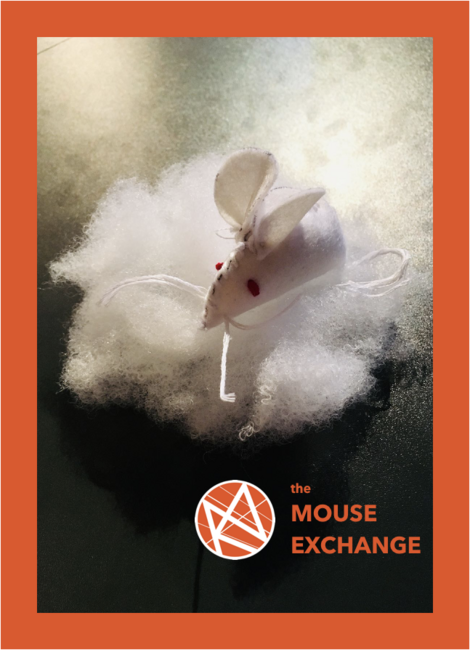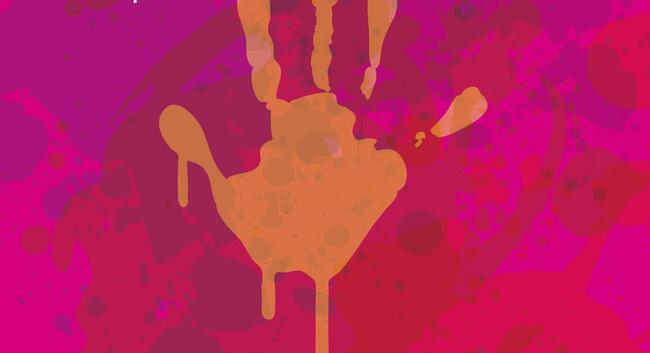Culture of Care
Relevant, tagged site content:
Blog entry
Research conducted by members of the AnNex team has highlighted the growing number of initiatives designed to engage and involve people with health conditions with the research that affects them.
Care is complicated and hard.
We are delighted to publish this guest blog as part of our Coronavirus Connections series.
Numbers can be a contentious issue in animal research.
Understanding and examining the significance of the laboratory space physically, practically, emotionally and metaphorically, is opening up new lines of social scientific enquiry regarding the relations between health, science and welfare
At the start of this project we stated one of our key objectives was to generate new cultures of communication across science, health and animal welfare, which would shape the future of animal research in the UK.
Publications
Animal research remains a practice marked by controversy and moral dilemma. However, UK science-society dialogues on the issue are increasingly managed via one-way transmissions of information which construct publics as passive and attribute their concerns to a lack of ‘correct’ knowledge. Challenging such assumptions, this paper questions how and why people actively manage their interactions with animal research through entangled practices of knowing and caring. Based on an analysis of writing from the UK Mass Observation Project, this paper explores difficulties and discomforts associated with animal research which can cause strategic withdrawals from engagements with the topic. In doing so, it extends existing concepts of ‘uncomfortable knowledge’ (Rayner) and ‘strategic ignorance’ (McGoey) to develop novel concepts of ‘uncomfortable’ and ‘strategic’ care. Finally, in examining desires to respond to animal research, I engage with Haraway’s notion of ‘response-ability’ to introduce the concepts of ‘responsive caring’ and ‘responsive knowing’.
This thesis, written by Tess Skidmore, explores the rehoming of laboratory animals. Drawing on qualitative interviews and a semi-structured questionnaire, the thesis investigates the sociocultural and political importance of the growing attention toward rehoming.
This report describes the design, piloting and evaluation of a 2–3-hour training exercise that uses storytelling to reflect upon the culture of care in animal research establishments.
Laboratory animal science represents a challenging and controversial form of human-animal relations because its practice involves the deliberate and inadvertent harming and killing of animals. We propose that different notions of care are enacted alongside, not only permitted levels of harm inflicted on research animals following research protocols, but also harms to ATs in the processes of caring and killing animals.
Animal research conducted outside of the laboratory faces various unique challenges, but has received only limited attention in terms of official guidelines, support, and statistics.
A good culture of care, empowering individuals within organisations to care and reflecting wider social expectations about care, is now a well-documented aspiration in managing practices of laboratory animal research and establishing priorities for patient and public health. However, there is little attention to how different institutional cultures of care interact and what happens to the accountabilities of caring roles and the entanglements of caring practices when institutional cultures meet.
This special issue of Science, Technology and Human Values was guest edited by members of the AnNex team. It explores the changing situation of the 3Rs through five papers that explore how the 3Rs principles emerged, chart the ways they are enacted in practice, and reflect on their future challenges.
This poster explores the increase in popularity of the zebrafish in animal research in the UK, raising questions about how the species is incorporated into and transforms animal research infrastructures and practices of care and welfare.
Improving laboratory animal science and welfare involves many questions which social scientists and humanities scholars have researched, or have the capacity to inform. This paper outlines our “Collaborative Agenda for Future Humanities and Social Scientific Research on Laboratory Animal Science and
Events
Where do lab mice come from? Where do they end up? Joins us for crafting felt mice to exchange or take home. You can also explore the history, practices, and ideas of care involved in making laboratory mice.
Join researchers from the University of Southampton for a family day suitable for all ages.
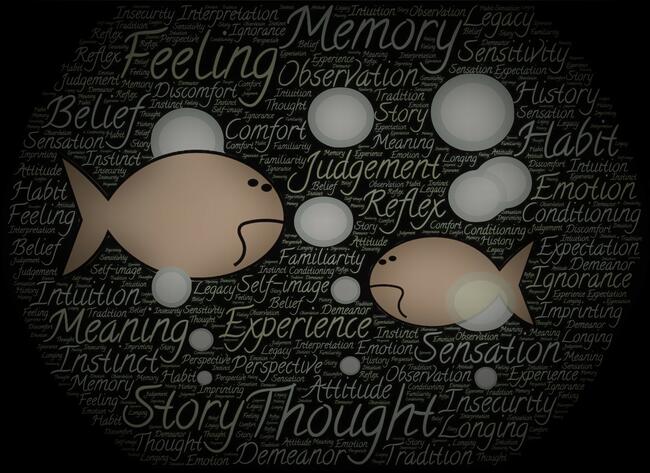
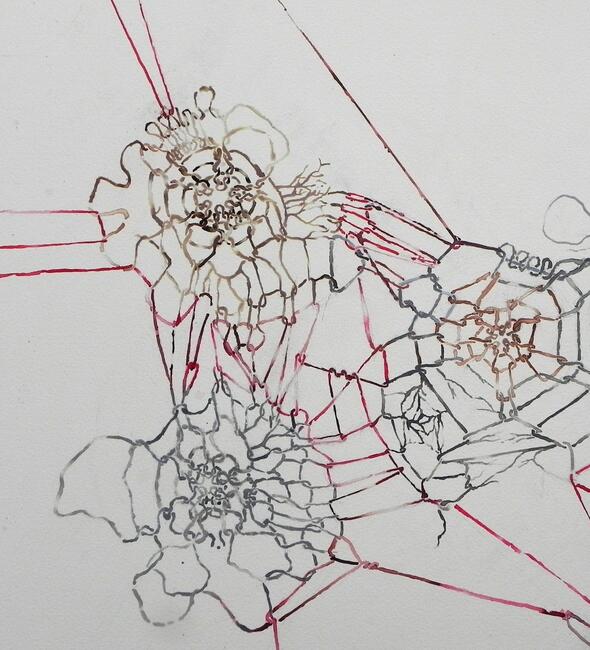


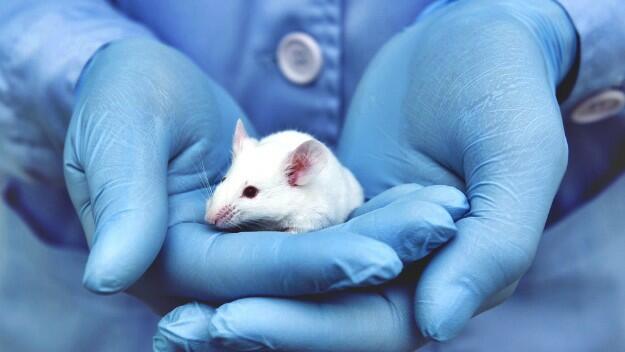
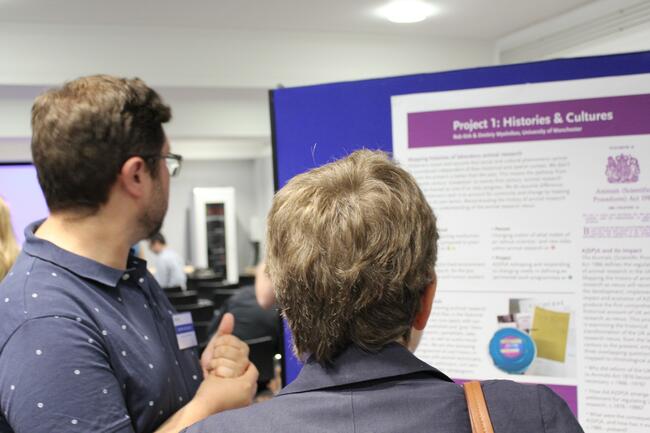
 Knowing and (Not) Caring About Animal Research_0.png%3Fitok=2jjq5NPu)
